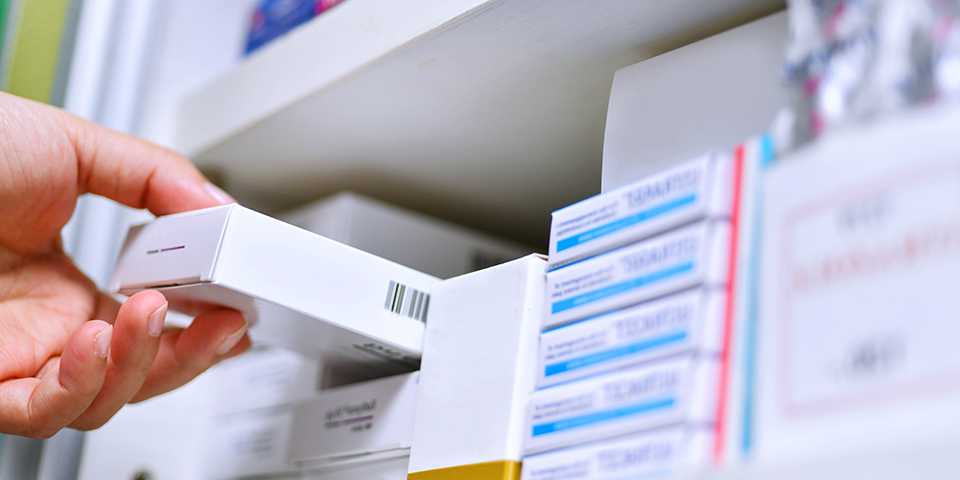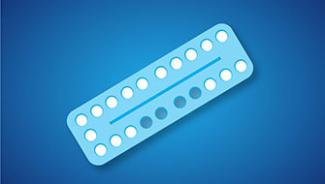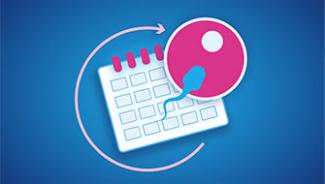Getting off hormonal birth control? 8 questions you might be asking

This article discusses general information about birth control. Please always refer to product information and usage instructions for specific details about methods of birth control, especially for drugs and medications. If in doubt, speak to a healthcare provider for advice.
Stopping hormonal birth control is a common experience, whether you’re switching to a new method, trying to get pregnant or going through perimenopause. Here we dig into the research behind what you might experience when you stop using a hormonal method of birth control — and debunk some common misunderstandings about using or stopping use of these methods.
What to expect when getting off birth control
Everyone is different, so your experiences will be unique to you, your body and the reasons you chose hormonal birth control. If you started taking it for benefits unrelated or in addition to pregnancy prevention, you’re not alone — hormonal birth control has widely reported perks (which we explore more below) ranging from decreasing period pain to reducing acne. If you have a condition that hormonal birth control helped lessen or control, you may experience those preexisting conditions again once you stop taking it.
If you intend to stop taking hormonal birth control, make sure you speak to your doctor, who can provide you with information suited to your circumstance.
A quick refresher on hormonal birth control methods
Hormonal birth control methods use a combination of estrogen and progestin (a synthetic form of progesterone), or progestin alone, to prevent pregnancy. Hormonal birth control options include combined oral contraceptives (commonly called “the pill”), progestin-only pills (sometimes called the mini pill), implants, injections, patches, hormonal vaginal contraceptive rings and IUDs with progestin.1,2 (Note that there are two types of IUDs: A hormonal IUD releases the hormone progestin into the uterus, while a copper IUD doesn’t contain hormones.)3
Non-hormonal methods of birth control include condoms, sponges, diaphragms or cervical caps, and spermicides.1
Questions about getting off hormonal birth control
1. Are there “side effects” of stopping hormonal birth control?
Not quite. In general, most people won’t technically experience “side effects” after they stop birth control. However, you may experience some changes. This is because many people take hormonal birth control for benefits beyond preventing pregnancy. If a preexisting condition was alleviated, controlled or lessened once you started using hormonal birth control, the signs of that condition may return after you’ve stopped using it.3,4
These are some of the conditions hormonal forms of birth control are commonly reported to help with:
- Irregular periods, heavier periods and longer periods3,4
- Menstrual cramps4
- Acne and unwanted hair growth4
- Frequent migraines4
- Pelvic pain due to endometriosis5
As always, reach out to your doctor and consult for information about the specific hormonal birth control you’ve been using. Both of these resources will help you understand more about the method you’ve been using and what to expect when you stop using it.
2. How do you get off hormonal birth control?
Before stopping any form of birth control, it’s important to talk to your doctor first. Let’s take a look at what the process will likely entail (for most forms of birth control, it’s quite simple!):
- IUD: This can be removed at any time, but it must be removed by a healthcare professional.6,7
- Implant: This can also be removed at any time, but it must be removed by a healthcare professional.6,8
- Injection: To stop taking this form of birth control, don’t get the next injection (but you should talk to your doctor and let them know you’re planning to stop coming in for injections).
- Combined oral contraceptives: You can stop taking the pills at any time. Depending on when you stop, you may experience some menstrual bleeding and your menstrual cycle may change.9
- Progestin-only pill: You can stop taking the pills at any time. Depending on when you stop, you may experience some menstrual bleeding and your menstrual cycle may change.10
- Patch: Read the instruction pamphlet and talk to your doctor. But to stop, simply peel off the patch.
- Hormonal vaginal contraceptive ring: Read the instruction pamphlet and talk to your doctor. But you can stop using this at any point in your menstrual cycle.
3. Does hormonal birth control impact fertility after you stop using it?
A 2020 study published by The BMJ looked at the types of birth control women used and noted average delays between stopping and conception.11 But before we take a deeper dive into the results, know this: Studies have shown that hormonal birth control has no long-term impact on your chances of getting pregnant (once you stop using it, of course). A 2018 meta-analysis looked at 14,884 women who discontinued contraception use between 1985 and 2017. Within the first 12 months, 83.1% of these women reported getting pregnant.12
4. So how soon can you get pregnant after stopping “the pill” or other hormonal methods?
According to The BMJ study, women who used the following hormonal contraception methods experienced, on average, these delays between stopping the use of a method and conception:
- Injectables (five to eight cycles)
- Patches (four cycles)
- Oral contraceptives and rings (three cycles)
- IUDs and implants (two cycles)11
5. How do you switch to a different form of birth control?
Switching to a different form of birth control can be a relatively simple process, but it’s a highly individual one. How you go about it depends on the type of birth control you’re taking now, why you want to switch, what you want to switch to, current health considerations and future plans.
Before switching to a different form of birth control, talk to your doctor. They will help you decide when and how to switch.
Generally reported questions about getting off hormonal birth control and potential changes to your body
You may wonder how transitioning off your chosen form of hormonal birth control may affect you. Spoiler alert: We checked the studies and didn’t find data supporting claims that present-day forms of hormonal birth control would, on their own, result in significant changes to weight or breast size for most people. Every health situation is different, though, so don’t hesitate to ask your doctor these or any other questions you have about how using hormonal birth control or transitioning off it might impact your health
6. Can getting off birth control cause weight gain?
Chances are, stopping hormonal birth control isn’t the direct cause of weight gain you may experience after you stop using it. Sometimes weight loss is listed as a side effect of taking various hormonal birth control methods (and you should always consult the product information and talk to your doctor to be sure). However, for most people, birth control does not cause weight loss and therefore it’s unlikely you will gain weight as a result of stopping it.13 Of course, if you change your routine in other ways, you may notice weight gain, and everyone handles hormonal changes differently.
7. Will getting off birth control help me lose weight?
There’s a common misconception that hormonal birth control causes weight gain, so it’s easy to see why this question is asked a lot. Why the assumption that hormonal birth control causes weight gain? Back in 1960, the U.S. approved the first hormonal birth control pill, which contained a whopping 150 mcg of estrogen (mestranol).14 For context, today’s birth control pills typically contain between 10 and 35 mcg of estrogen (ethinyl estradiol).15 Estrogen can lead to water retention.16 So while the birth control pill your grandmother took may have caused her body’s weight to change due to water retention from all that estrogen, today’s “pill” has far less estrogen. Any weight changes you see will likely be minimal.
Interestingly, a 2022 report looked at the effect of perceived weight gain on hormonal contraception choices for women and found several themes, including negative perceptions, fears of weight gain, decisions based on those fears, avoidance and discontinuing hormonal contraception solely due to fear of weight gain, limited knowledge and lack of counseling.17
So, if you want to stop using hormonal birth control, feel free to make the best choice for your health and well-being — and know that the stories about anticipated weight gain or weight loss aren’t backed up by the science.
8. Does stopping birth control make your breasts smaller?
This is a common question, but reputable evidence for this concern just isn’t founded. There isn’t scientific support for the idea that taking hormonal birth control could make your breasts larger, nor that stopping birth control could make your breasts smaller. If your breasts grew while you were using a hormonal method, stopping use won’t make them revert to their previous size — because if they grew, birth control wasn’t the cause.
When getting off birth control, for whatever reason, talk to your doctor. They will be able to answer any questions you may have about stopping birth control and help you plan for whatever lies ahead.
Related Articles
Sources :
- Centers for Disease Control and Prevention. Contraception. Updated November 1, 2022. Accessed February 9, 2023. https://www.cdc.gov/reproductivehealth/contraception/index.htm
- U.S. Food & Drug Administration. Birth control. Updated December 23, 2022. Accessed February 9, 2023. https://www.fda.gov/consumers/free-publications-women/birth-control
- The American College of Obstetricians and Gynecologists. Long-acting reversible contraception (LARC): intrauterine device (IUD) and implant. Updated November 1, 2021. Accessed February 9, 2023. https://www.acog.org/womens-health/faqs/long-acting-reversible-contraception-iud-and-implant
- The American College of Obstetricians and Gynecologists. Combined hormonal birth control: pill, patch, and ring. Updated March 2018. Accessed February 9, 2023. https://www.acog.org/womens-health/faqs/combined-hormonal-birth-control-pill-patch-ring
- The American College of Obstetricians and Gynecologists. Progestin-only hormonal birth control: pill and injection. Updated October 2020. Accessed February 9, 2023. https://www.acog.org/womens-health/faqs/progestin-only-hormonal-birth-control-pill-and-injection
- The American College of Obstetricians and Gynecologists, Practice Bulletin No. 186. Long-acting reversible contraception: implants and intrauterine devices. Updated November 2017. Reaffirmed 2021. Accessed February 9, 2023. https://www.acog.org/clinical/clinical-guidance/practice-bulletin/articles/2017/11/long-acting-reversible-contraception-implants-and-intrauterine-devices
- The American College of Obstetricians and Gynecologists. LARC removal. Accessed February 9, 2023. https://www.acog.org/programs/long-acting-reversible-contraception-larc/video-series/removal
- The American College of Obstetricians and Gynecologists. Easy implant removal.Accessed February 9, 2023.https://www.acog.org/programs/long-acting-reversible-contraception-larc/video-series/removal/easy-implant-removal
- Mayo Clinic. Birth control pill FAQ: benefits, risks and choices. Updated December 3, 2022. Accessed February 9, 2023. https://www.mayoclinic.org/healthy-lifestyle/birth-control/in-depth/birth-control-pill/art-20045136
- MedlinePlus, National Library of Medicine. Birth control pills – progestin only. Updated October 5,2020. Accessed February 9,2023. https://medlineplus.gov/ency/patientinstructions/000656.htm
- Yland JJ, Bresnick KA, Hatch EE, Wesselink AK, Mikkelsen EM, Rothman KJ et al. Pregravid contraceptive use and fecundability: prospective cohort study. BMJ. 2020;371:m3966. Accessed February 9,2023. https://www.bmj.com/content/371/bmj.m3966
- Girum T, Wasie A. Return of fertility after discontinuation of contraception: a systematic review and meta-analysis. Contracept Reprod Med. 2018;3(9). Accessed February 9, 2023. https://doi.org/10.1186/s40834-018-0064-y
- National Center for Biotechnology Information, National Library of Medicine. Contraception: do hormonal contraceptives cause weight gain? Updated June 29, 2017. Accessed February 9, 2023. https://www.ncbi.nlm.nih.gov/books/NBK441582/
- Shoupe D. The progestin revolution: progestins are arising as the dominant players in the tight interlink between contraceptives and bleeding control. Contracept Reprod Med. 2021;6(3). Accessed February 9, 2023. https://contraceptionmedicine.biomedcentral.com/articles/10.1186/s40834-020-00142-5
- Britton LE, Alspaugh A, Greene MZ, McLemore MR. An evidence-based update on contraception. Am J Nurs. 2020;120(2):22-33. doi: 10.1097/01.NAJ.0000654304.29632.a7. Accessed February 9, 2023. https://www.ncbi.nlm.nih.gov/pmc/articles/PMC7533104/
- Stachenfeld NS. Sex hormone effects on body fluid regulation. Exerc Sport Sci Rev. 2008;36(3):152-159. doi: 10.1097/JES.0b013e31817be928. Accessed February 9, 2023. https://www.ncbi.nlm.nih.gov/pmc/articles/PMC2849969/
- Roberts J, Skinner M, To A, Cho D. The effect of perceived weight gain on hormonal contraception choice for women: a review. McGill J Med. 2022;20(2). doi: 10.26443/mjm.v20i2.886. Accessed February 9, 2023. https://mjm.mcgill.ca/article/view/886/790

Can you get pregnant on birth control?
You may wonder if you can still get pregnant whilst using contraception. Discover how likely this is to happen.

When is the best time to get pregnant?
There are only a few days each cycle, around ovulation, when a woman is fertile. Knowing these days can maximise your chance of conceiving.




